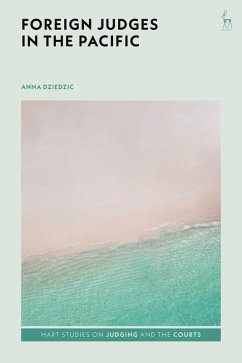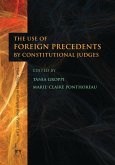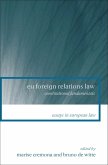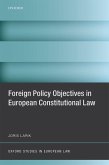This book explores the use of foreign judges on courts of constitutional jurisdiction in 9 Pacific states: Fiji, Kiribati, Nauru, Papua New Guinea, Samoa, Solomon Islands, Tonga, Tuvalu and Vanuatu.
We often assume that the judges sitting on domestic courts will be citizens. However across the island states of the Pacific, over three-quarters of all judges are foreign judges who regularly hear cases of constitutional, legal and social importance. This has implications for constitutional adjudication, judicial independence and the representative qualities of judges and judiciaries.
Drawing together detailed empirical research, legal analysis and constitutional theory, it traces how foreign judges bring different dimensions of knowledge to bear on adjudication, face distinctive burdens on their independence, and hold only an attenuated connection to the state and its people. It shows how foreign judges have come to be understood as representatives of a transnational profession, with its own transferrable judicial skills and values.
Foreign Judges in the Pacific sheds light on the widespread but often unarticulated assumptions about the significance of nationality to the functions and qualities of constitutional judges. It shows how the nationality of judges matters, not only for the legitimacy and effectiveness of the Pacific courts that use foreign judges, but for legal and theoretical scholarship on courts and judging.
We often assume that the judges sitting on domestic courts will be citizens. However across the island states of the Pacific, over three-quarters of all judges are foreign judges who regularly hear cases of constitutional, legal and social importance. This has implications for constitutional adjudication, judicial independence and the representative qualities of judges and judiciaries.
Drawing together detailed empirical research, legal analysis and constitutional theory, it traces how foreign judges bring different dimensions of knowledge to bear on adjudication, face distinctive burdens on their independence, and hold only an attenuated connection to the state and its people. It shows how foreign judges have come to be understood as representatives of a transnational profession, with its own transferrable judicial skills and values.
Foreign Judges in the Pacific sheds light on the widespread but often unarticulated assumptions about the significance of nationality to the functions and qualities of constitutional judges. It shows how the nationality of judges matters, not only for the legitimacy and effectiveness of the Pacific courts that use foreign judges, but for legal and theoretical scholarship on courts and judging.









